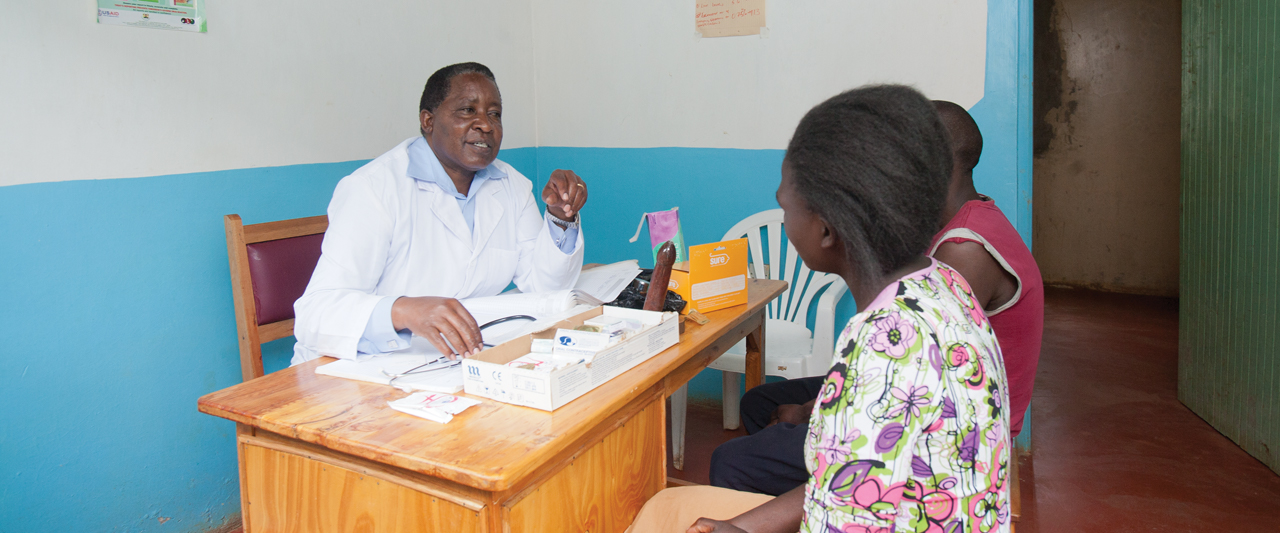The Democratic Republic of Congo (DRC) is taking a stand against high maternal mortality rates by including free maternity and newborn care in a recent universal health coverage initiative. And as a result of advocacy by Ipas DRC and local partners, comprehensive abortion care is included in the program.
“This monumental commitment by DRC’s Health Ministry paves the way for pregnant women to access the full spectrum of maternity care at public health centers, whether they decide to end or continue a pregnancy,” says Ipas DRC director, Jean-Claude Mulunda.
Having already trained individuals from the Health Ministry on sexual and reproductive health and rights, Ipas DRC was able to tap into existing support from within the government to gain an audience with stakeholders for their advocacy for including abortion in the new universal health coverage (UHC) initiative. By expanding upon the initiative’s goal of reducing maternal mortality, Ipas DRC made policymakers see that quality abortion access is a crucial part of saving more lives. With the increasing popularity of the Maputo Protocol as well the proven benefits of the Ipas-supported comprehensive abortion care standards and guidelines within the country’s health system, Mulunda says the time was right for Ipas DRC to make their case.
The free maternity program aims to include care before, during, and at the end of pregnancy—whether through abortion or birth—as well as care after abortion or birth, with follow-up and contraception. However, the commitment made by the government to include comprehensive abortion care in its UHC initiative is only a first step.
“This is the initial plan, but implementation is staggered depending on available funding,” says Jean-Claude Mulunda. “The role of Ipas in the following phases is to ensure that the government and UHC donors honor the initial commitments, which include comprehensive abortion care and contraception.”
Ipas helps tackle the challenges ahead
Lack of funding: The existing government budget is unable to finance integrating abortion care into the UHC program, making it dependent on donor funds. Ipas is working to help secure this missing funding.
Lack of political support: The need for comprehensive abortion care is less politically motivating for government leaders than universal health coverage on its own. This leads to less government pressure on the health system to provide services mandated by the UHC policy to include abortion care. Ipas works to show political leaders how access to quality abortion care translates to a better life for their constituents.
Lack of efficient systems and data: Out-of-date health information systems and poor data management prevent government officials from making informed decisions and effectively allocating health-care resources. To track progress and be able to provide effective support to the Health Ministry, Ipas will continue to support the government in developing tools for data management.
A million lives saved by 2030
The DRC’s progressive UHC initiative to include all maternity care comes at a time when the international community is increasingly recognizing the need to include sexual and reproductive health and rights (SRHR) as part of any UHC plan.
Spurred by the 2023 global UHC Summit, a high-level meeting of the United Nations General Assembly held in September, Spanish Minister of Foreign Affairs José Manuel Albares delivered a powerful joint statement on behalf of 60 countries on the need to “redouble our efforts to achieve UHC, with sexual and reproductive health and rights at its core.”
“Including sexual and reproductive health and rights in UHC emphasizes a human rights perspective, leads to improved health outcomes and generates economic and social benefits with greater gender equality,” it says in the joint statement. Explaining that equitable access to quality SRHR could save over a million lives by 2030, the statement cites data showing that it costs “just US $10.60 per person per year to provide essential sexual and reproductive health services.”



